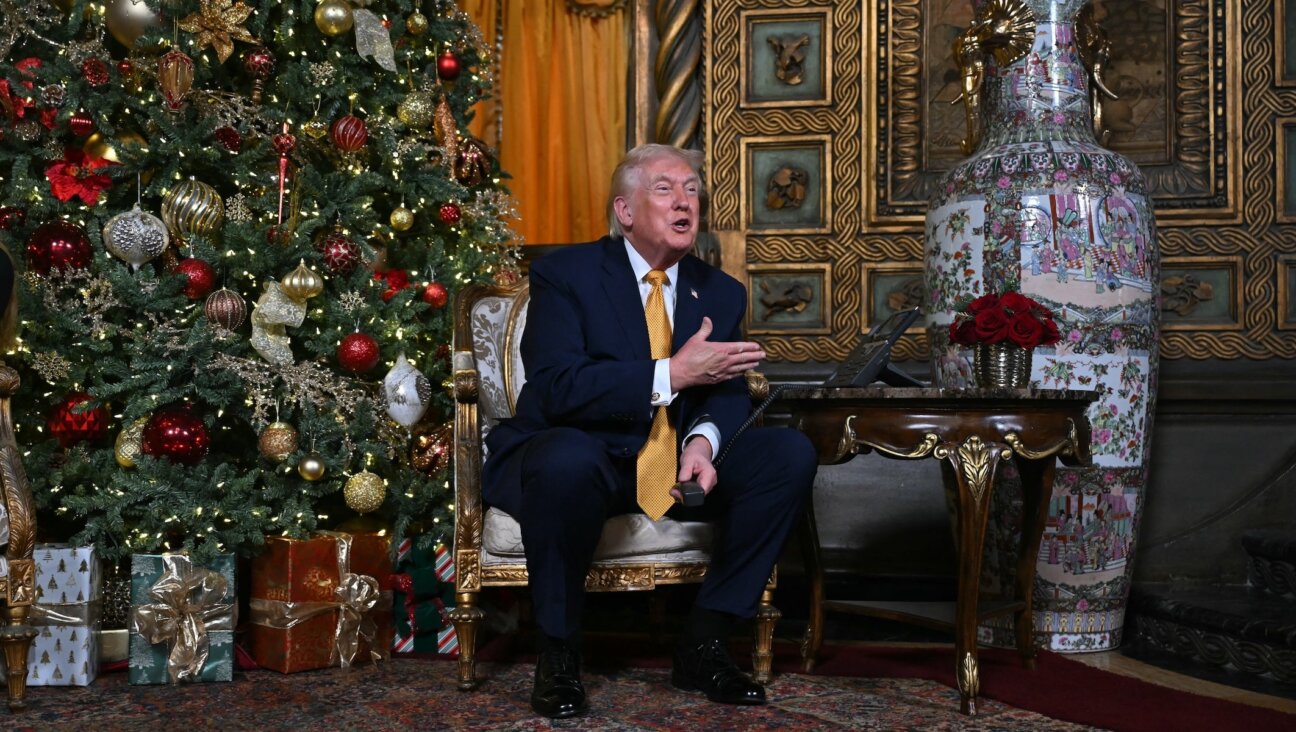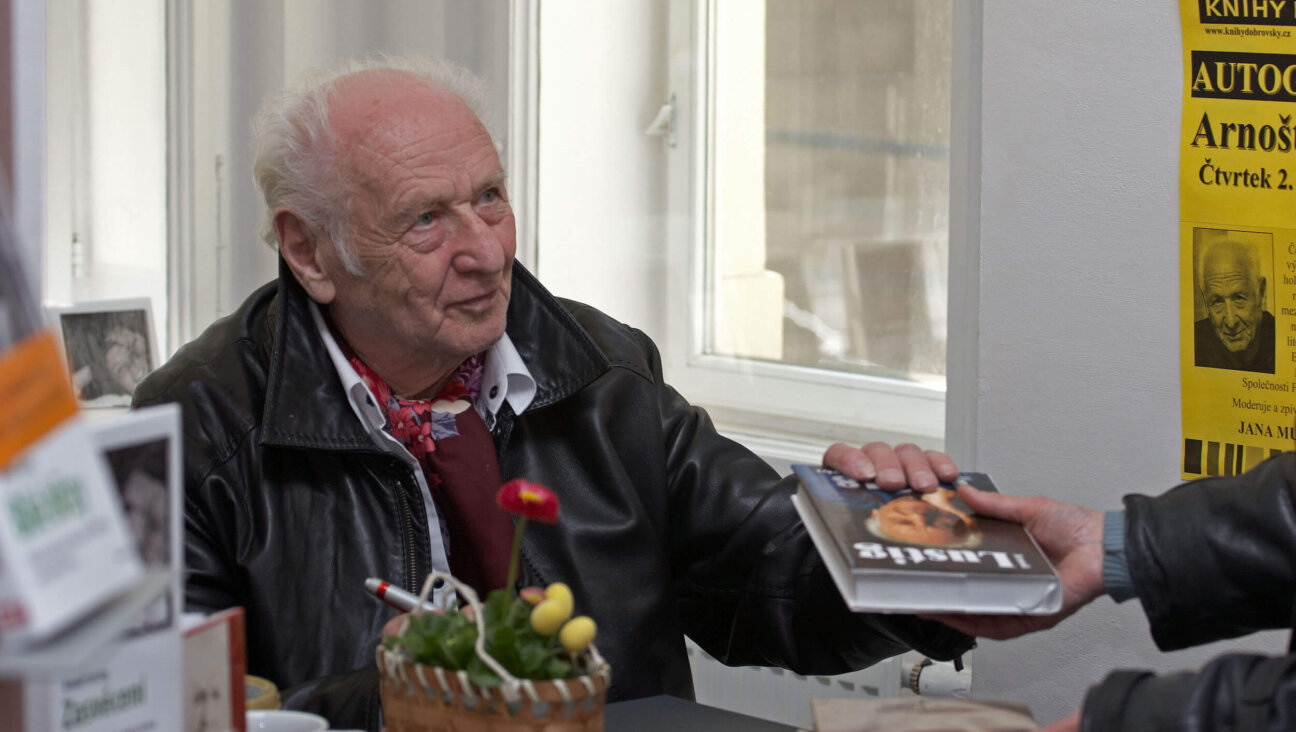Trump Says Settlement Expansion ‘May Not Help’ Peace

Donald Trump speaking at a rally during his presidential campaign. Image by Getty Images
WASHINGTON (JTA) — Settlement expansion “may not be helpful” in achieving peace, the Trump administration said, its first pronouncement on an issue that has for decades confounded U.S.-Israel relations.
The White House announcement Thursday evening comes a week after Israeli Prime Minister Benjamin Netanyahu announced major settlement building initiatives in the West Bank and eastern Jerusalem.
“While we don’t believe the existence of settlements is an impediment to peace, the construction of new settlements or the expansion of existing settlements beyond their current borders may not be helpful in achieving that goal,” the statement said.
Most of the announcements Netanyahu’s government authorized are in existing settlements, but there are patches that would expand settlements, and Cabinet ministers to Netanyahu’s right want to seize on the new friendliness of the Trump administration to expand settlements further and to annex territory.
The Trump White House statement avoids some of the thickets of disagreement that frustrated relations between Netanyahu and President Barack Obama, Trump’s predecessor.
It does not call for a stop on building in existing settlements, an activity that troubled Obama, and it does not call settlements an impediment to peace. That suggests a return to the approach of President George W. Bush who for a period said he could tolerate “natural growth” within existing settlement boundaries.
However, the statement does suggest that a president who has turned over tables in so many other spheres that once bound Democrats and Republicans – friendly outreach to a Russian government both parties have reviled in recent years is probably the best known example – is nonetheless seeking consistency on the Israeli-Palestinian issue.
On Friday, Israel’s deputy foreign minister, Tzipi Hotovely, highlighted the White House’s stated stance that expansion in these communities was not an obstacle to peace and added it was not “the problem” in the Israeli-Palestinian conflict, either.
“The White House itself holds that the settlements are not an obstacle to peace and they never have been. It must be concluded therefore that expansion of construction is not the problem,” she said in a statement.
“In the past 25 years all paths towards any kind of solution have been blocked by the Palestinians. The core questions as to the sources of the conflict should therefore be reexamined and new solutions proposed,” she added. The government is committed to building in “all parts of our land and we must respect the will of the people who elected us for this purpose,” Hotovely said in the statement.
President Donald Trump, who prides himself as a deal-maker, said throughout his campaign that he wants to bring about a breakthrough in Israeli-Palestinian peace, and that hope is pronounced in the statement.
“The American desire for peace between the Israelis and the Palestinians has remained unchanged for 50 years,” the statement said. “As the President has expressed many times, he hopes to achieve peace throughout the Middle East region.”
Trump and Netanyahu are due to meet in two weeks, and the statement said an overarching policy on settlements would not be in place until then.
“The Trump administration has not taken an official position on settlement activity and looks forward to continuing discussions, including with Prime Minister Netanyahu when he visits with President Trump later this month,” it said.















